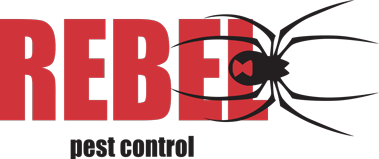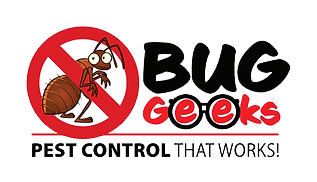Are you tired of constantly battling against pesky pests in your home or workplace? Do you cringe at the sight of ants marching across your kitchen counter or cockroaches scurrying under your appliances? Look no further, because we have the ultimate solution for you – click here to learn more about pest control and how it can help you enjoy a pest-free environment.
The Importance of Pest Control
Pests not only pose a threat to our physical health but also our mental well-being. The mere presence of rodents, insects, or other unwanted creatures can cause feelings of fear, disgust, and anxiety. Moreover, they can also damage our properties and contaminate our food, leading to costly repairs and potential health hazards.

This is where pest control comes in. It refers to the management and regulation of pest populations, usually through the use of pesticides, traps, and other methods. By taking preventive measures and addressing existing infestations, pest control helps to eliminate and prevent the return of these unwanted guests, allowing us to live and work in a clean and safe environment.
DIY vs. Professional Pest Control Services
Some people may be tempted to handle pest control on their own using DIY methods found on the internet. While these may seem like a cost-effective option, they are often not as effective as professional pest control services. Not to mention, they can also be dangerous if not handled properly.
Professional pest control services, on the other hand, ensure that the right methods and products are used to target specific pests, minimizing any potential harm to ourselves, our pets, and the environment. Additionally, they have the knowledge and experience to identify and locate pest infestations, providing a long-term solution rather than just a temporary fix.
Types of Pest Control Methods
Pest control methods vary depending on the type of pest infestation and the severity of the problem. Some of the most common methods include chemical control, physical control, and biological control.
Chemical control involves the use of pesticides to kill or repel pests. It is usually the most effective method but also has the potential to harm non-target organisms such as plants and animals. Therefore, it should only be used by trained professionals.
Physical control methods, on the other hand, involve the use of barriers or traps to physically prevent pests from entering or to capture them. This method is commonly used for rodents, insects, and birds.
In contrast, biological control uses natural predators or parasites to keep pest populations in check. This is considered a more eco-friendly option, as it does not involve the use of chemicals.
The Role of Prevention
As the saying goes, prevention is better than cure. The same applies to pest control. By taking preventive measures, we can minimize the likelihood of a pest infestation occurring in the first place.
Simple actions such as keeping our surroundings clean and tidy, sealing gaps and cracks in our homes or offices, and properly storing food can help to prevent pests from gaining entry and making themselves at home. Regularly inspecting and maintaining our properties can also help to identify potential pest issues early on.
Choosing the Right Pest Control Service Provider
When it comes to pest control, it is essential to choose a trustworthy and reliable service provider. Do your research and read reviews from previous customers to ensure that they have a good track record. Inquire about their methods and products used, and make sure they are licensed and insured.
It is also important to communicate any concerns or questions you may have and to follow any instructions given by the service provider. This will ensure that the pest control treatment is carried out effectively and safely.
So, click here to take the first step towards a pest-free environment. Say goodbye to pests once and for all, and enjoy a clean, safe, and healthy space for you and your loved ones.







